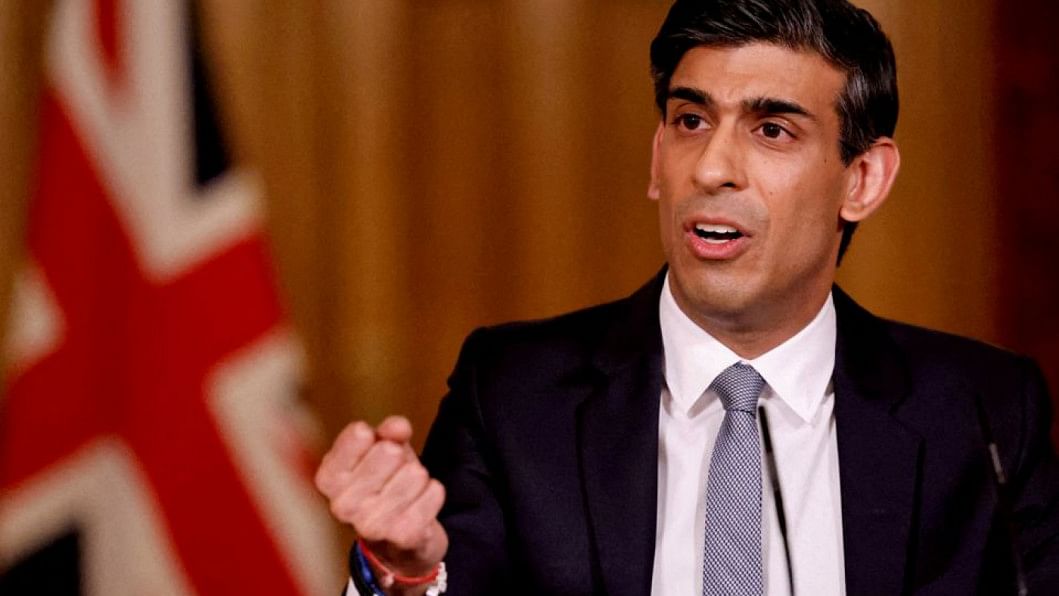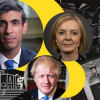No smooth sailing ahead for Rishi Sunak

In October 2021, when Covid-19 was still claiming lives, Rishi Sunak, member of parliament (MP) in the UK parliament, refrained from joining any Diwali parties, but lit up his official residence at 11 Downing Street in London beautifully. No one was caught by surprise as the chancellor of the exchequer always took pride in being a British-Indian. A year later, amid the festival of lights, he has been elected for the country's top job. Again, no one is surprised, as he is the obvious choice – so obvious that the Tories even avoided a vote. The New York Times observes, "It was a head-spinning reversal of fortune for Mr Sunak, whose abrupt resignation from Mr Johnson's cabinet last July set in motion Mr Johnson's downfall and pitched Britain into upheaval, culminating in Ms Truss's brief, calamitous stint."
That Rishi Sunak's ascension to Britain's highest political office brings along a bunch of "firsts" is public knowledge – including him being the first former Goldman Sachs employee and first hedge fund manager. Who can set so many records in one go? (S)he must be someone extraordinaire!
Among other accomplishments, including being richer than the royals, Rishi's signature trait would be prudence – financial and beyond.
Critics often label him as a jetsetter, having little or no first-hand knowledge of the lives of the masses. This, however, will not be a problem if he can bring changes to their lives in the coming weeks and months. What may rather continue to haunt him is the widespread scepticism about his wealth. Sunak and his wife, Akshata Murty, together have an estimated fortune of about 730 million pounds.
The biggest chunk of their annual income comes from Akshata's shareholding in her father's tech giant Infosys. She now pays tax as per the law of the land, but has been doing so only after being exposed as a "non-domicile" tax return filer. The couples' explanation on the status could not bury the tax scandal.
Also, why a chancellor of a national exchequer would apply for/hold a US green card ignited debate within the party. His spokesperson's statement that he returned the permit in 2021 could not settle the issue for good.
Boris Johnson loyalists count Rishi as the former's political assassin. They have endorsed Rishi for now. But will they be persistent if things go south?

Rishi's first two days in office has set the tone for the next two years (UK's general election is scheduled for January 2025). He has carefully crafted a cabinet to combat the current crisis, retained Jeremy Hunt, who served Liz Truss, but reversed the policies of his predecessor Kwasi Kwarteng. He brought back Suella Braverman, home secretary, who resigned earlier only for a procedural error. He even kept Nadim Zahawi who succeeded Sunak on July 5 as the new finance secretary, as a minister without portfolio. Penny Mordaunt continues as the leader of the House of Commons. She made it to the final three candidates for the prime minister eight weeks ago, and in the latest run, she withdrew after it became clear that she fell short of gathering the support of 100 Conservative lawmakers.
There are four more acts of prudence that has drawn worldwide attention. Rishi's seven-minute speech from the steps of 10 Downing Street was a humble yet bold beginning. The speech was an example of how one can be critical of a predecessor, yet pay tribute to them, how one can shed light on the past turbulence, yet focus on the future, and how one can put the economic woes wide in the open, yet make no fuss about them. The best was perhaps this part, "The mandate my party earned in 2019 is not the sole property of any one individual. It is a mandate that belongs to and unites all of us. And the heart of that mandate is our manifesto. I will deliver on its promise."
His first two international calls went to US President Joe Biden and Ukrainian President Volodymyr Zelensky.
He stalled the medium-term fiscal statement and set November 17 as the day to lay out new government's earning and spending plans.
In the face of a heated debate in parliament and opposition leader Keir Starmer's claim for a mid-term election, this whizz kid played to the gallery well – so well that no one would take him as a newcomer, let alone novice.
Max Colchester and Paul Hannon of the Wall Street Journal wrote on October 25, "Mr Sunak will likely face a winter of discontent as inflation, fuelled by rising energy costs from the war in Ukraine, increases faster than wages, and a possible recession takes hold that economists think could last a year."
We must wait till November 17 to see how Rishi formalises his plans to prevent a recession creeping into the world's sixth largest economy. His plan of action was vivid throughout the summer, though when he was campaigning for the top job, he lost to Truss. He criticised her plan to borrow funds to cut taxes as a "fairy tale." He lost, but his arguments won six weeks down the line. Ms Truss' unfunded tax cuts had to be rolled back, and she had to step down.
As unrolled in the campaign, Rishi will deploy arms and ammunitions to guard inflation, which has crested at 10.1 percent.
Tough and unpopular decisions on spending are on their way to fill a 40-billion-pound (equivalent to USD 45 billion) deficit in public finances.
While he lays his plans to build back Britain, he knows for sure that Labour leaders are not going to give it a smooth passage, as much of today's skyrocketing prices is of Rishi's own creation. Indeed, as the finance secretary, he dished out money during the pandemic even beyond their needs. Many Brits made more money sitting idle than working. He became hugely popular, but the economy suffered, so much so that it is yet to resettle on its pre-pandemic size.
Someone must fix it. Boris failed, Liz failed, Penny did not have a chance. Finally, the baton has been passed on to Rishi. Rishi Sunak, the man of the hour, is out to beat back the harshest economic head winds in a generation, reunite a divided party in power, draw investors' confidence in economic policies, and gain peoples' trust in the run-up to the next general election. Godspeed, Rishi!
Al Mamoon is member of the Pacific Council on International Policy and a former commercial counsellor at the Los Angeles Consulate.

 For all latest news, follow The Daily Star's Google News channel.
For all latest news, follow The Daily Star's Google News channel. 










Comments